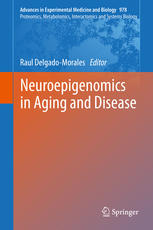

Most ebook files are in PDF format, so you can easily read them using various software such as Foxit Reader or directly on the Google Chrome browser.
Some ebook files are released by publishers in other formats such as .awz, .mobi, .epub, .fb2, etc. You may need to install specific software to read these formats on mobile/PC, such as Calibre.
Please read the tutorial at this link: https://ebookbell.com/faq
We offer FREE conversion to the popular formats you request; however, this may take some time. Therefore, right after payment, please email us, and we will try to provide the service as quickly as possible.
For some exceptional file formats or broken links (if any), please refrain from opening any disputes. Instead, email us first, and we will try to assist within a maximum of 6 hours.
EbookBell Team

0.0
0 reviewsEpigenetic mechanisms (DNA modifications, histone alterations and non-coding RNAs) are crucial for transcriptional regulation and alterations of the “physiological epigenome” are increasingly associated with human diseases. During the last decade the emerging field of neuroepigenomics have started to impact tremendously in areas such learning and memory, addiction or neurodegeneration. This expert volume covers the role of epigenetic molecular mechanism in regulation of central nervous system’s function, one of the most exciting areas of contemporary molecular neuroscience. The book describes the current knowledge on the epigenetic basis of human disease covering the complete lifespan: from neurodevelopment/childhood (Rett Syndrome, Rubinstein-Taybi, autism), adolescence (eating disorders, drug addiction, anxiety), adulthood (depression, schizophrenia, amyotrophic lateral sclerosis, Huntington’s disease) and elderly (Alzheimer’s disease, Parkinson’s disease).
The book also covers the three major players on neuroepigenomic mechanisms: histones alterations, DNA modifications and non-coding RNAs, their roles at the molecular and cellular level and the impact of their alterations on neuronal function and behavior. Finally, a special chapter on state-of-the-art technologies helps the reader not only to understand epigenetic driven changes in human cognition and diseases but also the methodology that will help to generate paradigm shifts on our understanding of brain function and the role of the neuroepigenome in human diseases.